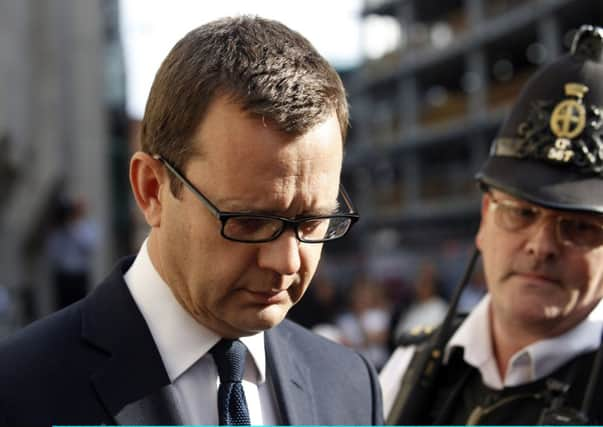Leaders: Statutory regulation is bad news for all


Andy Coulson could now face a prison sentence, while former News International chief executive Rebekah Brooks was cleared of five charges against her. They were among seven defendants in a trial that lasted 138 days. The jury continues to consider misconduct in public office charges against Coulson, subsequently Prime Minister David Cameron’s director of communications, and former News of the World royal editor Clive Goodman.
Given the high public profile of many of those whose phones were illegally tapped, the particularly venal hacking of the voicemail of murdered Surrey teenager Milly Dowler and that five other people have previously admitted guilt over phone hacking, the scandal came to be seen less as a condemnation of a small group of law-breaking journalists in one particular news organisation and more a verdict on the conduct and culture of the British press in general. The industrial scale of the phone hacking and the high profile of many of the victims ensured public concern was, quite rightly, intense and widespread.
Advertisement
Hide AdAdvertisement
Hide AdNow campaigners for tough statutory press controls say the defence that the hacking was done by “one rogue reporter” has been exposed to be false. But the “rogue reporter” defence has been long abandoned and phone hacking cannot in fairness be said to have been practised across the whole of the newspaper industry – local, regional or national.
That said, the actions of several News of the World employees and private investigators who worked for them have had and are about to have a wide-ranging effect on newspapers. Let it not be forgotten that phone hacking is an illegal activity. The law should have been sufficient to deal with these breaches. But now the whole industry faces greater regulation, even though the vast majority of those who work in it work within the law and comply with existing codes of conduct and practice.
Newspapers accept that the public needs to have confidence in their conduct restored. This process will be helped by the establishment of the new regulatory body, the Independent Press Standards Organisation, which the Hacked Off campaign said in the aftermath of the Coulson verdict should be abandoned. But the unthinkable alternative is statutory controls determined by politicians which would prejudice the freedom of news reporting and comment that this country has long enjoyed and is a major benefit to our democratic system. That greater regulation is coming is apparent and correct given the actions of a few have damaged an entire industry. But the solution offered by Ipso is not discredited by this trial, and in fact still offers the best solution to the public and the country in the long term.
Time running out for Iraq
Iraq shows every sign of falling apart. As the Isis group of Sunni rebels makes further advances in the north and west, threatening the capital Baghdad, pressure intensifies on the international community and on the United States in particular.
If America seeks to act with effect, it must do so soon. But while US secretary of state John Kerry signalled to Kurdish leaders in Iraq yesterday that it is “simply unacceptable to have a terrorist organisation grabbing territory and challenging the legitimacy of governments” there is little he can do until there is a new Iraqi government in place more broadly representative of the country’s deeply opposed factions. Indeed, he also signalled there could be no military solution until there is political change at the centre.
“Words are cheap. So it’s actions that will matter.” Unfortunately, time is not on his side to help resolve this issue. Urgent efforts are underway to get the Iraqi parliament to meet on 1 July and agree in advance who the new prime minister will be. This is unlikely to be the current incumbent Nouri Maliki but one of three possible contenders. Whoever is chosen will need to be acceptable both to America and to Iran, which has a key role to play in trying to broker a deal.
Meanwhile the Iraqi army continues to retreat in the face of the advancing rebels. And a United Nations human rights team in Iraq has reported that at least 1,075 people have been killed so far, most of them civilians. The UN said the figures, which include a number of summary executions, should be viewed as an absolute minimum. It is clear Iraq need help from the US and that becomes more urgent with every Isis advance.